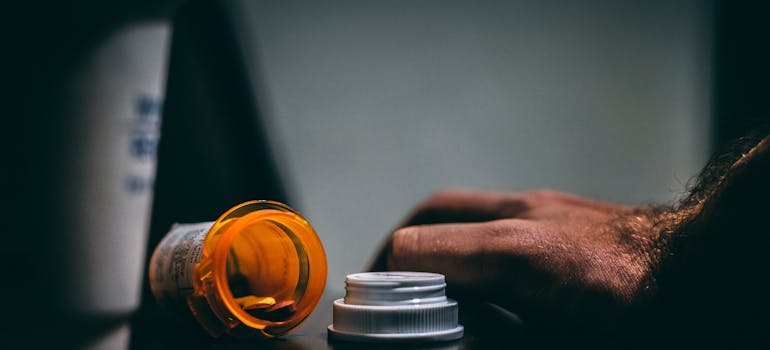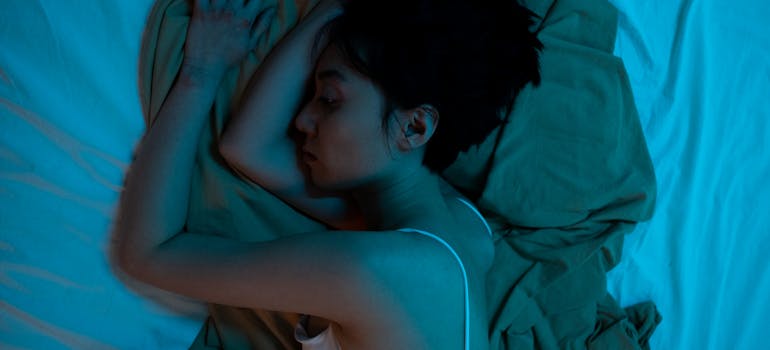A topic that touches many lives yet often goes unnoticed is the dangers of Benzodiazepine overuse. Benzodiazepines, commonly prescribed for anxiety, insomnia, and several other conditions, can lead to serious health issues if not used correctly. As you read on, you’ll learn not just about these risks but also how they manifest in everyday life. The problems with overusing benzodiazepines are severe and widespread. From dependency risks to cognitive impairments, the consequences can alter lives dramatically. If you or someone you know is struggling with this issue, understanding these dangers is the first step toward seeking help. It’s important to know that rehabs in WV and other places offer specialized care tailored to overcome these challenges. Join us as we delve deeper into understanding these risks and how to address them effectively.
What Are Benzodiazepines?
Benzodiazepines, also known as “benzos,” are drugs used to treat anxiety, insomnia, and seizures. They work by affecting the brain to calm it down. Here’s how they help:
- They can make you feel relaxed and sleepy.
- They help you fall asleep.
- They reduce feelings of anxiety.
- They can prevent seizures.
- They ease muscle tension.

These effects make benzodiazepines very effective for treating certain medical conditions. However, it’s essential to use them under medical supervision because misuse can lead to dependency or serious health issues. Always follow your doctor’s instructions and discuss any concerns you might have about your medication to avoid the dangers of benzodiazepine overuse.
The Scope of Benzodiazepine Overuse: Trends and Statistics
Benzodiazepine overuse is a significant issue, affecting millions across the United States. About 12.5% of adults, or roughly 30.5 million people, use benzodiazepines. More concerning is that around 2.1% of these users misuse them, and 0.2% have serious disorders linked to their use. The reasons for misuse vary, with 11.8% using these drugs to get high, while others become dependent. Additionally, 22.4% misuse them to improve sleep, reduce tension, or cope with stress.
The risks are compounded when benzodiazepines are mixed with opioids; over 30% of opioid overdoses also involve benzodiazepines. This combination significantly increases the risk of death—those using both opioids and benzodiazepines have a death rate ten times higher than those using opioids alone.

Prescription trends also indicate a growing problem. From 1996 to 2013, benzodiazepine prescriptions rose by 67%, from 8.1 million to 13.5 million annually, contributing to easier access and higher overdose rates. This trend highlights the need for increased awareness and control over prescription practices.
Health Risks from Overuse: Physical and Psychological Effects
The risks of taking too many benzodiazepines are severe and wide-ranging. Physically, overuse can lead to respiratory depression, making it difficult to breathe, and increasing the risk of overdose. Cognitive functions can also suffer, leading to memory problems and impaired decision-making. Psychologically, the side effects of using benzodiazepines too much include dependence and addiction, which can take a tremendous toll on one’s mental health. Withdrawal symptoms, which may occur when trying to quit or reduce use, include anxiety, insomnia, and severe mood swings.
For those struggling with these issues, drug rehab centers in WV offer professional support and treatment. These facilities provide a structured environment where individuals can safely manage withdrawal symptoms and work towards recovery.
Long-Term Effects of Overusing Benzodiazepines – What to Expect
The long-term downsides of excessive benzodiazepine use are both serious and impactful. Over time, individuals often develop a tolerance to benzodiazepines, meaning they need higher doses to achieve the same effects, which can escalate the risk of severe health issues. Additionally, users may experience rebound anxiety or insomnia when they attempt to stop or reduce their dosage, complicating recovery efforts.
Memory impairment is another significant consequence of long-term benzodiazepine use, potentially affecting daily functioning and overall quality of life. These cognitive challenges can make managing day-to-day responsibilities increasingly difficult, leading to a diminished quality of life. If you are facing these persistent challenges, long term drug rehab WV centers provide specialized programs. These facilities focus on comprehensive rehabilitation, helping individuals slowly rebuild their lives, manage symptoms sustainably, and reduce the likelihood of relapse.

Dangerous Interactions: Mixing Benzodiazepines with Other Substances
Combining benzodiazepines with other substances like alcohol, opioids, and certain prescription medications greatly increases the risk of adverse reactions, which can be severe. These dangerous interactions can lead to increased benzodiazepine overdose risks and consequences, including slowed breathing, profound sedation, and even death. The body’s ability to process these drugs effectively is compromised when mixed, leading to potentially lethal levels in the bloodstream.
For those struggling with benzodiazepine misuse and its complications, our partial hospitalization program West Virginia residents swear by offers a structured treatment environment while allowing some daily independence. This type of program focuses on intensive care during the day with medical supervision, providing a crucial support system to address and manage these risks effectively.
Why Overuse Happens – Risk Factors and Causes
Several factors contribute to the overuse of benzodiazepines, leading to significant health risks and dependency. Key contributors include:
- Inappropriate Prescribing Practices: When benzodiazepines are prescribed without strict guidelines or for prolonged periods, the risk of dependency increases.
- Polypharmacy: Using multiple medications simultaneously can lead to interactions that inadvertently encourage the overuse of benzodiazepines.
- Self-Medication: Individuals may misuse benzodiazepines to cope with stress or emotional pain, often without medical guidance.
- Lack of Awareness: Many people are not fully informed about the dangers associated with long-term use of benzodiazepines.
Spotting Benzodiazepine Overuse: Key Signs and Symptoms
Understanding what happens when you take too many benzodiazepines is crucial for recognizing the need for intervention. If you or someone you know is exhibiting the following signs, it might indicate overuse, and seeking help from residential treatment facilities in WV could be a necessary step:
- Changes in behavior: Noticeable shifts in how one acts, often leaning towards either increased secrecy or aggression.
- Mood swings: Rapid and extreme changes in mood, which may seem uncharacteristic.
- Memory problems: Difficulties in recalling recent events or forming new memories.
- Physical symptoms: Including persistent drowsiness, slurred speech, and a general slowdown in reflexes.

Overcoming Benzodiazepine Overuse: Challenges and Barriers
Overcoming benzodiazepine overuse is tough, and it’s a key reason why you should be careful with benzodiazepine use. One major issue is physical dependence; your body gets used to the drug, making it hard to stop. When you try to quit, you might face severe withdrawal symptoms like anxiety, shaking, trouble sleeping, and even seizures. These symptoms require professional help to manage safely.
Finding the right help can be another big challenge. Barriers such as not enough treatment centers, high costs, or no insurance can make it hard to get the support you need. Substance abuse treatment WV programs are available, but knowing how to access these services is crucial. Tackling these challenges is essential for recovery and building a benzodiazepine-free life.
Treatment Paths for Benzodiazepine Overuse – Exploring Your Options
If you’re looking for help with benzodiazepine overuse, there are several effective treatment options available:
- Medication-assisted treatment: West Virginia residents highly recommend medication-assisted treatment programs that use medications to ease withdrawal symptoms and reduce cravings, providing a smoother path to recovery.
- Benzo detox: Detoxification programs focus on safely removing benzodiazepines from the body under medical supervision, helping to manage withdrawal in a controlled environment.
- Cognitive behavioral therapy for substance abuse disorders: This type of therapy addresses patterns of thinking that lead to substance use and teaches skills to manage stress and triggers without drugs.
- Peer Support Groups: Connecting with others facing similar struggles can provide encouragement and shared experiences to support recovery.
These varied approaches offer comprehensive support to address the physical, psychological, and social aspects of benzodiazepine dependency.
Strategies for Safer Use: Reducing Harm from Benzodiazepines
For those unable or unwilling to stop using benzodiazepines, harm reduction strategies can help minimize risks:
- Safer use practices: Learn and apply ways to use benzodiazepines more safely, like avoiding mixing them with alcohol or other drugs.
- Overdose prevention education: Educate yourself and others on the signs of an overdose and how to respond quickly. Understanding these signs can save lives.
- Access to naloxone: Keep naloxone on hand, a life-saving drug that can reverse the effects of a benzodiazepine overdose. Make sure you and those around you know how to use it.
- Regular medical check-ups: Regular visits to a healthcare provider can help monitor your health and the effects of benzodiazepine use.
- Guidance on dosage adjustment: Consult with healthcare professionals to ensure dosages are safe and effective, reducing the risk of overdose and other complications.
These strategies aim to reduce the negative consequences associated with benzodiazepine use, providing safer alternatives and crucial knowledge to those not ready to quit.
Education and Advocacy in Benzodiazepine Use
It’s vital for patients to understand how using too many benzodiazepines can harm you. Educating patients about the dangers of benzodiazepine overuse is a key step in tackling this issue. When patients know the risks, they can make better decisions about their medication use.

Talking openly with healthcare providers is also crucial. Patients should feel comfortable discussing their treatment, expressing concerns, and asking questions. This open communication helps ensure that benzodiazepines are used safely and effectively. Finally, patients can play a role in advocating for safer prescribing practices. By speaking up about their experiences and the need for caution, they can help shape policies that prevent overuse. Empowering patients in these ways leads to better health outcomes and safer communities.
Policy Approaches to Benzodiazepine Overuse: Regulations and Reforms
Addressing the dangers of benzodiazepine overuse requires thoughtful regulatory and policy changes. It’s crucial to improve how doctors prescribe these medications. Guidelines need to be stricter to prevent over-prescription and ensure these drugs are used safely and appropriately. Policies should also focus on making treatment more accessible. This means funding more treatment programs and ensuring insurance covers the necessary services. By improving access, more people can receive the help they need without facing financial barriers.
Additionally, reducing the stigma around addiction and mental health is essential. Public education campaigns can help change how society views these issues, encouraging more people to seek help without fear of judgment. Together, these efforts can create a safer and more supportive environment for those affected by benzodiazepine overuse.
Helping Loved Ones with Overuse
If you’re worried about a loved one’s benzodiazepine use, knowing how to support them is crucial. Start by talking openly and kindly about the dangers of benzodiazepine overuse. It’s important to pick a quiet time when you both can chat without interruptions. Express your concerns without blaming them, focusing on how you’ve noticed changes in their behavior or health.

Offer your support by being there, listening, and encouraging them to seek help. Research together the treatment options and resources available. Sometimes, just knowing they’re not alone can make a big difference. Lastly, help them connect with professionals who can guide them through recovery. Finding the appropriate support, whether it’s through local healthcare services or a specialized intensive outpatient program West Virginia professionals recommend, can be crucial to one’s journey toward recovery.
Moving Forward from The Dangers of Benzodiazepine Overuse
We’ve explored the dangers of benzodiazepine overuse and the serious negative effects of benzodiazepine overconsumption. It’s clear that using these drugs too much can really harm your health and change your life in unexpected ways. If you’re facing these challenges, it’s important to seek help. Remember, there’s support available, and you can take control back. Be proactive about your health and well-being. Don’t hesitate to reach out for the help you need. Getting the right support can make all the difference in finding a way forward.



